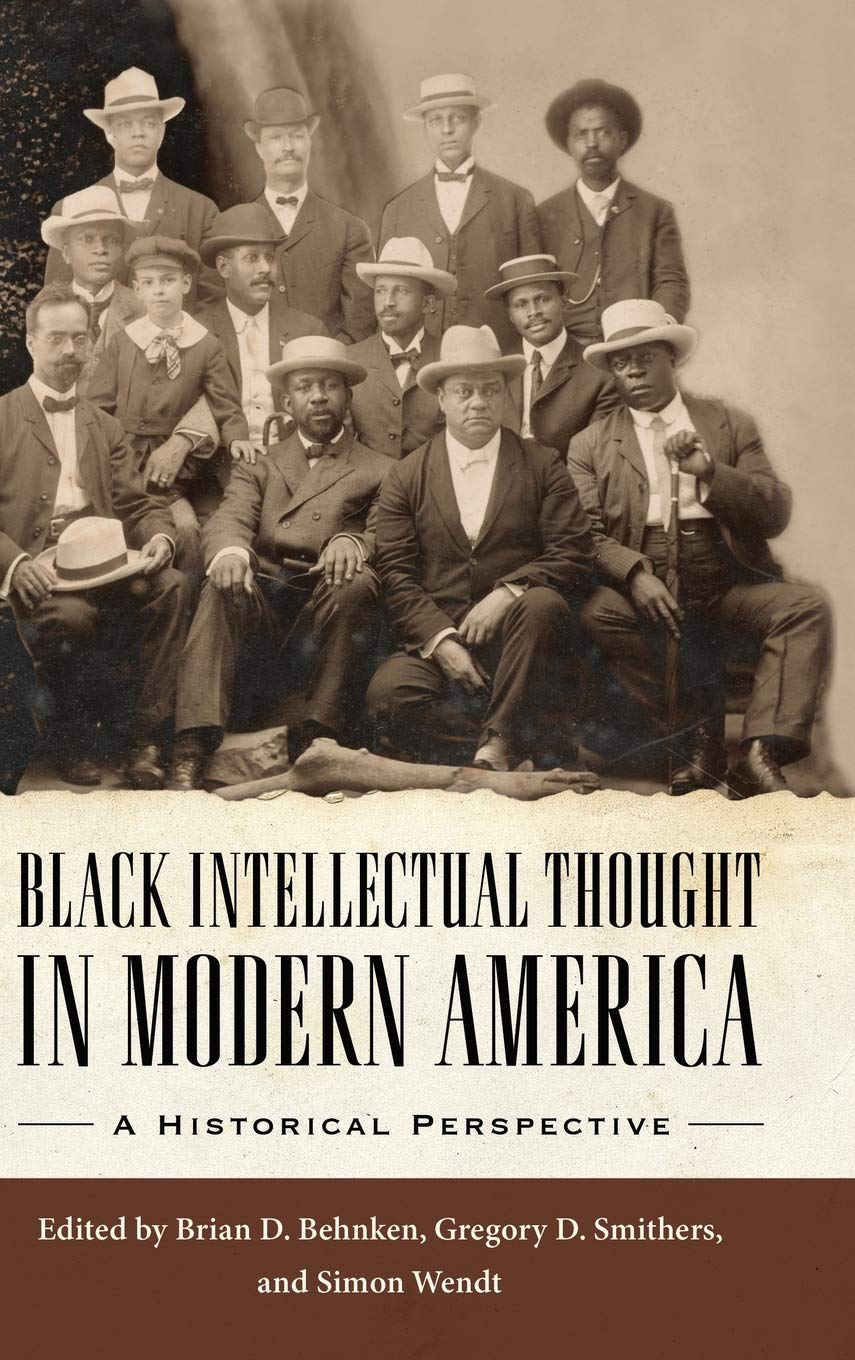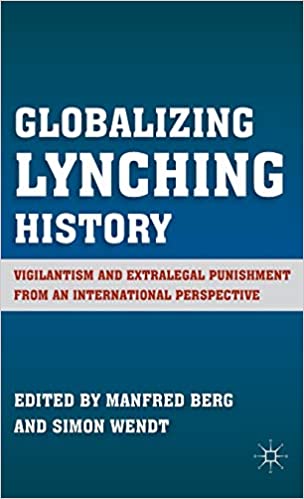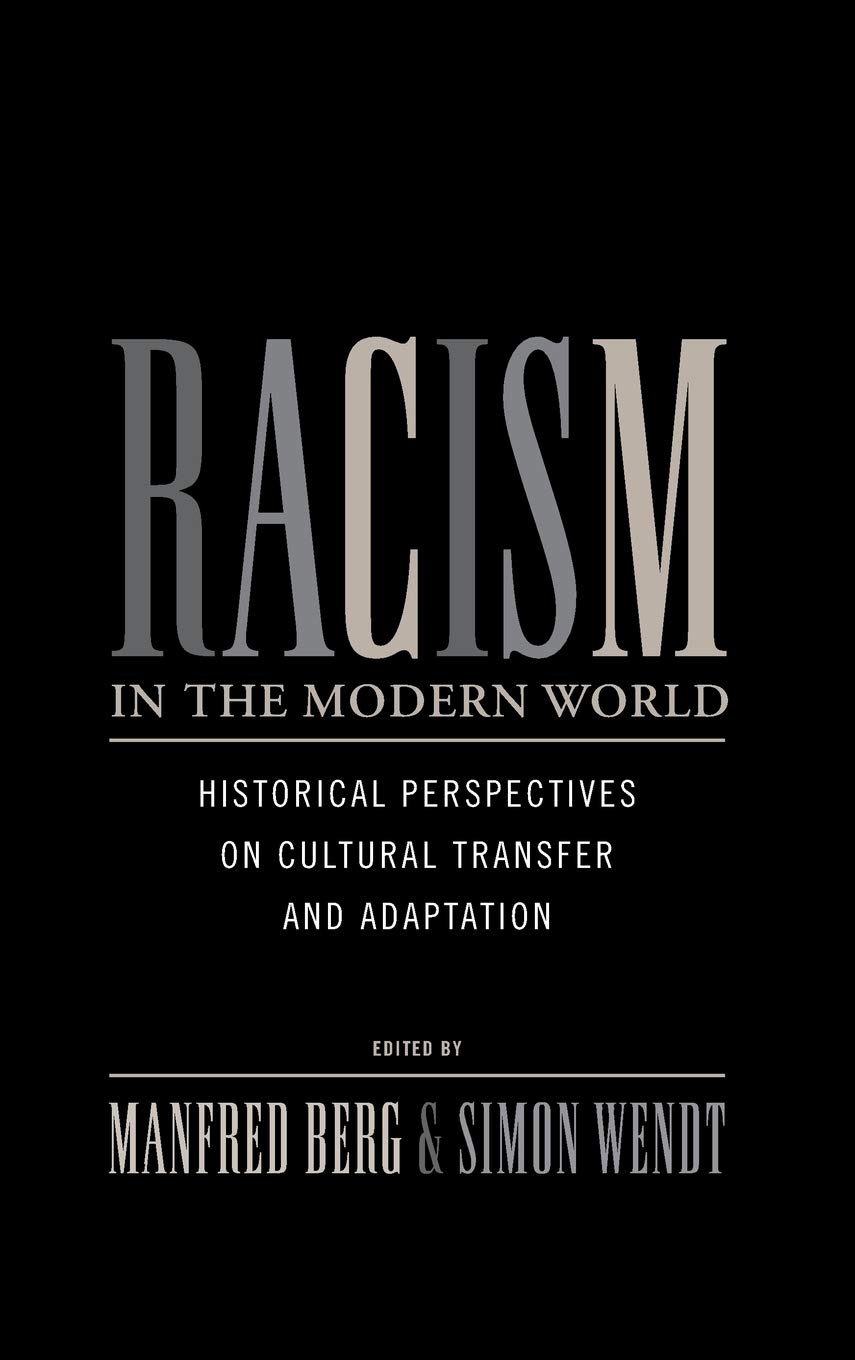Journal Articles
“Defenders of Patriotism or Mothers of Fascism? The Daughters of the American Revolution, Antiradicalism, and Un-Americanism in the Interwar Period.” Journal of American Studies 47, no. 4 (November 2013): 943-969.
“Transnational Perspectives on the History of Race and Racism in North America.” Amerikastudien 54, no. 3 (2009): 473-498.
“Protection or Path toward Revolution? Black Power and Self-Defense.” Souls 9, no. 4 (October December 2007): 320-332.
“‘They Finally Found Out that We Really Are Men’: Violence, Non-Violence and Black Manhood in the Civil Rights Era.” Gender & History 19, no. 3 (November 2007): 543-564.
“God, Gandhi, and Guns: The African American Freedom Struggle in Tuscaloosa, Alabama, 1964 - 1965.” Journal of African American History 89, no. 1 (Winter 2004): 36-56.
“‘Urge People Not to Carry Guns’: Armed Self - Defense in the Louisiana Civil Rights Movement and the Radicalization of the Congress of Racial Equality.” Louisiana History 45, no. 3 (Summer 2004): 261-286.
“Southern Intellectuals and the Defense of Slavery: The Proslavery Thought of George Fitzhugh and Henry Hughes.” Southern Historian
23 (Spring 2002): 56-70
Book Chapters
“Instrument of Subjugation or Avenue for Liberation? African American Military Heroism in World War II and the Vietnam War.” In
Warring over Valor: How Race and Gender Shaped American Military Heroism in the Twentieth and Twenty-First Centuries, ed. Simon Wendt, 57-78. New Brunswick, NJ: Rutgers University Press, 2018.
“American Studies as a Multi/Inter/Transdisciplinary Endeavor? Problems, Challenges, and the Potential of Heroism for Collaborative Research.” In Projecting American Studies: Essays on Theory, Method, and Practice, ed. Frank Kelleter und Alexander Starre, 197-205. Heidelberg: Winter, 2018.
“‘The Thought of a Black Male with a Weapon Scares America’: African Americans, the Second Amendment, and the Racial Politics of Armed Self-Defense in the Civil Rights Era and Beyond” (with Rebecca Rössling). In The Second Amendment and Gun Control: Freedom, Fear, and the American Constitution, ed. Kevin Yuill and Joe Street, 65-82. New York: Routledge, 2018.
“Intellectual Predicaments: Black Nationalism in the Civil Rights and Post - Civil Rights Eras.” In Black Intellectual Thought in Modern America: A Historical Perspective , ed. Brian D. Behnken, Gregory D. Smithers, and Simon Wendt, 170-205. Jackson: University Press of Mississippi, 2017.
“Heldentum und Autorität in der US-amerikanischen Gesellschaft um 1900.” In Autorität: Krise, Konstruktion und Konjunktur , ed. Oliver Kohns, Till van Rahden, and Marc Roussel, 75-107. Paderborn: Fink, 2016.
“Eldridge Cleaver: Soul on Ice (1967) Oder: ‘I will not be free until the day I can have a white woman in my bed and a white man minds his own business.’” In Race & Sex: Eine Geschichte der Neuzeit, ed. Jürgen Martschukat and Olaf Stieglitz, 152-159. Berlin: Neofaris, 2016.
“White Elite Women, the Gendered Memory of Heroism, and American Nationalism, 1890-1939.” In Bewunderer, Verehrer, Zuschauer: Die Helden und ihr Publikum, ed. Ronald G. Asch and Michael Butter, 161-178. Würzburg: Ergon, 2016.
“Transnationalizing American and Transatlantic History: Chances and Challenges.” In American Studies Today: New Research Agendas, ed. Winfried Fluck, Erik Redling, Sabine Sielke, and Hubert Zapf, 3-24. Heidelberg: Winter, 2014.
“Nationalist Middle-Class Women, Memory, and Conservative Family Values, 1890-1945.” In Gender Roles and the Family: Changing Values and Norms in 20th-Century United States, ed. Isabel Heinemann, 31-58. Frankfurt: Campus, 2012.
“Bodybuilding, Male Bodies, and Masculinity in 19th and 20th Century America: Eugen Sandow and Arnold Schwarzenegger.” In Arnold Schwarzenegger: Interdisciplinary Perspectives on Body and Image, ed. Michael Butter, Patrick Keller, and Simon Wendt, 25-48. Heidelberg: Winter, 2011.
“Transnationalizing American Studies: Historians’ Perspectives,” (with Heike Bungert). In American Studies/Shifting Gears, ed. Birte Christ, Christian Kloeckner, Elisabeth Schäfer-Wünsche, and Michael Butter, 89-116. Heidelberg: Winter, 2010.
““We Were Going to Fight Fire with Fire”: Black Power in the South.” In Neighborhood Rebels: Black Power at the Local Level, ed. Peniel Joseph, 131-147. New York: Palgrave, 2010.
“Massenmedien und die Bedeutung von Helden und Stars in den USA (1890-1929).” In Medien und Imagepolitik im 20. Jahrhundert: Deutschland, Europa, USA, ed. Daniela Münkel and Lu Seegers, 187-205. Frankfurt: Campus, 2008.
“Martin Luther Kings Philosophie der Gewaltfreiheit–Prinzip oder Methode? Pazifismus, gewaltloser Protest und bewaffneter Widerstand in der afroamerikanischen Bürgerrechtsbewegung.” In Martin Luther King, Jr.: Leben, Werk und Vermächtnis, ed. Michael Haspel and Britta Waldschmidt-Nelson, 35-54. Weimar: Wartburg Verlag, 2008.
“Krieg und Heldentum in den USA: Die Heroisierung amerikanischer Soldaten vom Ende des Bürgerkriegs bis zum spanisch-amerikanischen Krieg.” In Krieg: Vergleichende Perspektiven aus Kunst, Musik und Geschichte, ed. Cord Arendes and Jörg Peltzer, 115-132. Heidelberg: Winter, 2007.
“Gewalt und Männlichkeit in der Black Power Bewegung.” In Väter, Soldaten, Liebhaber: Männer und Männlichkeiten in der Geschichte Nordamerikas, ed. Jürgen Martschukat and Olaf Stieglitz, 355-369. Bielefeld: Transcript, 2007.
“African Americans and Criminal Justice in the American South: The Convict Lease System, 1868-1928.” In Criminal Justice in Germany and the United States, ed. Manfred Berg, Stefan Kapsch, and Franz Streng, 19-28. Heidelberg: Winter, 2006.
“The Roots of Black Power? Armed Resistance and the Radicalization of the Civil Rights Movement.” In The Black Power Movement: Rethinking the Civil Rights - Black Power Era, ed. Peniel E. Joseph, 145-165. New York: Routledge, 2006.
Encyclopedia Articles
“Daughters of the American Revolution.” In Encyclopedia of American Social History, ed. Lynn Dumenil, 246-248. New York: Oxford University Press, 2012.
“Black Self-Defense;” “Deacons for Defense and Justice;” “Williams, Robert F.” In Encyclopedia of African American History, ed. Leslie Alexander and Walter Rucker, 665-667, 732-733, 1104-1105. Santa Barbara: ABL-CLIO, 2010.
“African American Resistance, Jim Crow Era;” “African American Resistance, Reconstruction
Era;” “American Slave Rebellions.” In International Encyclopedia of Revolution and Protest: 1500 to the Present, ed. Immanuel Ness, 16-19, 19-21, 88-90. New York: Blackwell, 2009.
“Civil Rights Movement.” In Encyclopedia of African American History, 1896-Present, ed. Paul Finkelman, 411-419. New York: Oxford University Press, 2009.
“Du Bois, W.E.B” and “Garvey, Marcus.” In Encyclopedia of the Jazz Age: From the End of World War I to the Great Crash, ed. James Ciment, 183-184, 256-257. New York: M.E. Sharpe, 2008.
“Bunche, Ralph (1904-1971);” “Gandhi, Mohandas (1869-1948);” “Kenyatta, Jomo (1897/1898?-1978);” “King, Martin Luther, Jr. (1929-1968);” “Mau Mau;” “Weathermen.” In Encyclopedia of the Cold War: A Political, Social, and Military History, ed. Spencer C. Tucker and Andrew McCormick, 214-215, 486-487, 711-712, 720-722, 832-383, 1417-1418. Santa Barbara: ABC-CLIO, 2007.
“Southern Christian Leadership Conference;” “Poor People’s Campaign;” “Selma March.” In Postwar America: An Encyclopedia of Social, Political, Cultural, and Economic History, ed. James Ciment, 987-989, 1103-1105, 1153-1155. New York: M.E. Sharpe, 2006.
“Parks, Rosa Louise.” In Encyclopedia of American Lives, ed. Arnold Markoe, Karen Markoe, and Kenneth T. Jackson. Vol. 7, 413-415. New York: Charles Scribner’s Sons, 2006.
“Nonviolent Direct Action and the Civil Rights Movement”; “Congress of Racial Equality”; “Racial Violence and the Civil Rights Movement.” In Encyclopedia of American Social Movements, ed. Immanuel Ness. Vol. 1, 202-207; 208-211; 222-226. New York: M.E. Sharpe, 2004.
“Sullivan, Leon Howard;” “Williams, Hosea Lorenzo.” In The Scribner Encyclopedia of American Lives, ed. Kenneth T. Jackson. Vol. 6, 500-502, 569-571. New York: Charles Scribner’s Sons, 2004.
“Cold War (1945-1950), The Start of the Atomic Age.” In Encyclopedia of Espionage, Intelligence, and Security, ed. K. Lee Lerner and Brenda Wilmoth Lerner. Vol. 1, 230-233. New York: Gale, 2004.
“Malcolm X (Malik El-Shabazz).” In The Scribner Encyclopedia of American Lives: The 1960s, ed. William L. O’Neill. Vol. 2, 37-40. New York: Charles Scribner’s Sons, 2003.
Book Reviews
Charles E. Cobb Jr., This Nonviolent Stuff'll Get You Killed: How Guns Made the Civil Rights Movement Possible. New York: Basic Books, 2014. American Historical Review 120, no. 2(April 2015): 672-673.
The Black Power Mixtape 1967-1975. Dir. by Göran Hugo Olsson. Prod. by Annika Rogell, Joslyn Barnes, and Danny Glover. Louverture Films, 2011. Journal of American History 99, no. 1 (June 2012): 380-382.
Paul Alkebulan, Survival Pending Revolution: The History of the Black Panther Party. Tuscaloosa: University of Alabama Press, 2007. Journal of African American History 94, no. 1 (2009): 125-127.
Mark Newman, The Civil Rights Movement. Edinburgh: Edinburgh University Press, 2004. Journal of Southern History 74, no. 1 (2008): 229.















